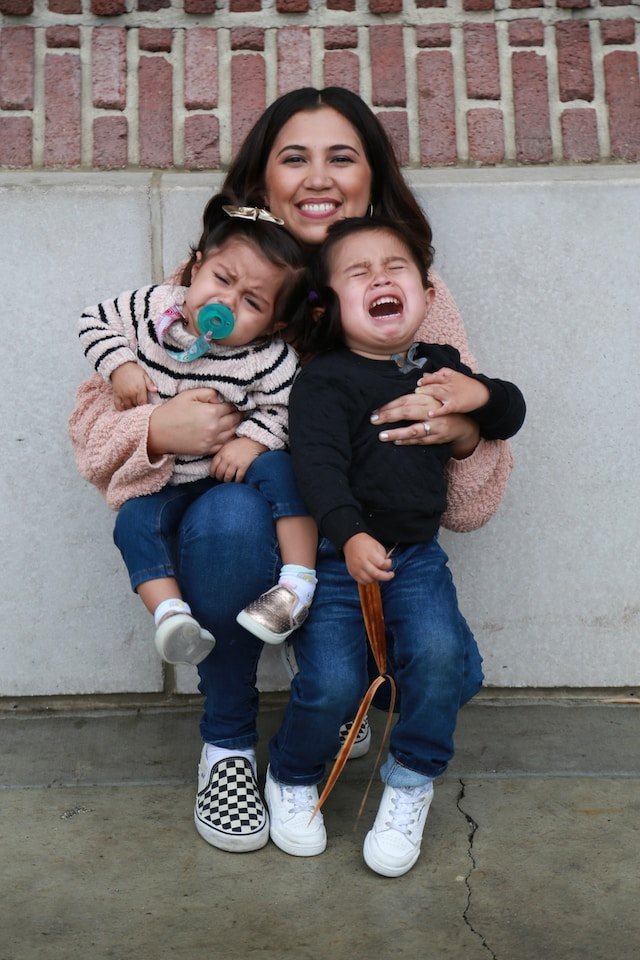9 Coping Strategies for Postpartum Overstimulation
The journey into parenthood is a life-altering experience filled with joy, love, and the occasional challenge.
One challenge that new moms (myself included!) may encounter is postpartum overstimulation.
In this comprehensive blog, I explore the causes, symptoms, frequently asked questions (FAQs), and effective coping strategies to help new moms manage this demanding phase with greater confidence and resilience.
Understanding Postpartum Overstimulation
Causes
Postpartum overstimulation, also known as postpartum sensory overload, occurs when new parents feel overwhelmed due to a combination of factors. Some common causes include:
Hormonal Changes:
The dramatic fluctuations in hormones, particularly estrogen and progesterone, can affect emotional regulation, making parents more susceptible to stress and sensory overload.
Lack of Sleep:
Newborns require around-the-clock care, which often results in sleep deprivation. A lack of quality sleep can leave parents feeling emotionally fragile and less able to cope with the demands of a newborn.
Infant's Intense Needs:
A newborn's needs for feeding, diaper changes, and constant attention can create a relentless environment that's physically and emotionally demanding.
Social Pressure:
The pressure to meet societal expectations of the "perfect parent" can contribute to feelings of inadequacy, anxiety, and stress.
Unexpected Challenges:
Unexpected issues, such as breastfeeding difficulties or postpartum depression, can add extra stressors, contributing to overstimulation.
Symptoms
Identifying postpartum overstimulation is crucial for effective management. Common symptoms may include:
Feeling Overwhelmed:
Parents may feel like they are constantly "on" and have no time to relax or recharge.
Irritability:
Irritability, mood swings, and increased emotional sensitivity can be early signs of overstimulation.
Anxiety:
Excessive worrying about the baby's well-being or being unable to relax, even when the baby is sleeping, can be a sign of overstimulation.
Fatigue:
The combination of physical and emotional demands can lead to extreme fatigue.
Sensory Sensitivity:
An increase in sensitivity to noise, light, and touch can be common in overstimulated parents.
Difficulty Bonding:
Some parents may find it challenging to bond with their newborn due to the constant stress and demands.
FAQS about Postpartum Overstimulation
Let's address some of the most frequently asked questions about postpartum overstimulation:
1. Is postpartum overstimulation common?
Yes, postpartum overstimulation is a common experience for many new parents, especially in the early months after birth. It's important to acknowledge its prevalence and seek support when needed.
2. How long does postpartum overstimulation last?
The duration of postpartum overstimulation varies from person to person. It often peaks in the first few months after childbirth and gradually improves as both the baby and parents adjust to their new routine. Seeking support and practicing self-care can expedite recovery.
3. Can postpartum overstimulation be prevented?
It's challenging to entirely prevent postpartum overstimulation, but steps can be taken to reduce its impact. Adequate rest, building a support system, setting realistic expectations, and maintaining open communication with your partner can help mitigate the effects.
4. When should I seek professional help for postpartum overstimulation?
If the symptoms of postpartum overstimulation persist and significantly affect your well-being or your ability to care for your baby, it's crucial to seek professional help. A therapist or counselor can provide effective strategies for managing this condition.
5. What can my partner do to help me cope with postpartum overstimulation?
Partners can play a vital role in supporting a new parent experiencing overstimulation. They can assist with baby care, encourage self-care, provide emotional support, and communicate openly to understand each other's needs and concerns.
Coping Strategies for Postpartum Overstimulation
Effectively managing postpartum overstimulation is essential for the well-being of both parents and the baby. Here are some coping strategies:
1. Prioritize Self-Care:
Make time for self-care activities, even if they're brief. A short nap, a relaxing bath, or a moment of quiet can help recharge your energy.
2. Seek Support:
Don't hesitate to ask for help from friends, family, or support groups. Sharing your experiences and concerns with others who understand can be comforting.
3. Set Realistic Expectations:
Adjust your expectations and goals. Understand that parenting is a learning process, and it's okay to make mistakes.
4. Establish a Routine:
Creating a consistent routine can provide stability and predictability for both parents and the baby. This can help reduce the stress of constant unpredictability.
5. Communicate with Your Spouse:
Open and honest communication with your spouse is essential. Share your feelings, concerns, and needs to ensure you're on the same page and can support each other effectively.
6. Practice Mindfulness and Relaxation Techniques:
Techniques like deep breathing, meditation, and mindfulness can help reduce anxiety and stress. Incorporate these practices into your daily routine.
7. Professional Help:
If symptoms persist or worsen, don't hesitate to seek professional help. A therapist or counselor can provide guidance and support tailored to your specific needs.
8. Healthy Lifestyle Choices:
Eating a balanced diet, staying hydrated, and engaging in light physical activity can contribute to your overall well-being. These choices can positively impact your mood and energy levels.
9. Get Adequate Rest:
Newborns sleep frequently in the early weeks. Use this time to rest and recharge, even if it's just for a short period.
Takeaways:
Postpartum overstimulation is a challenging but common aspect of early parenthood.
As a mom of four, I can definitley relate to this struggle.
Understanding its causes, recognizing its symptoms, and using coping strategies is so important for maintaining your sanity during this season of motherhood.
Remember that you're not alone, and there is support available to help you navigate this exciting, but very overwhelming, chapter in your life!
With love and solidarity,







